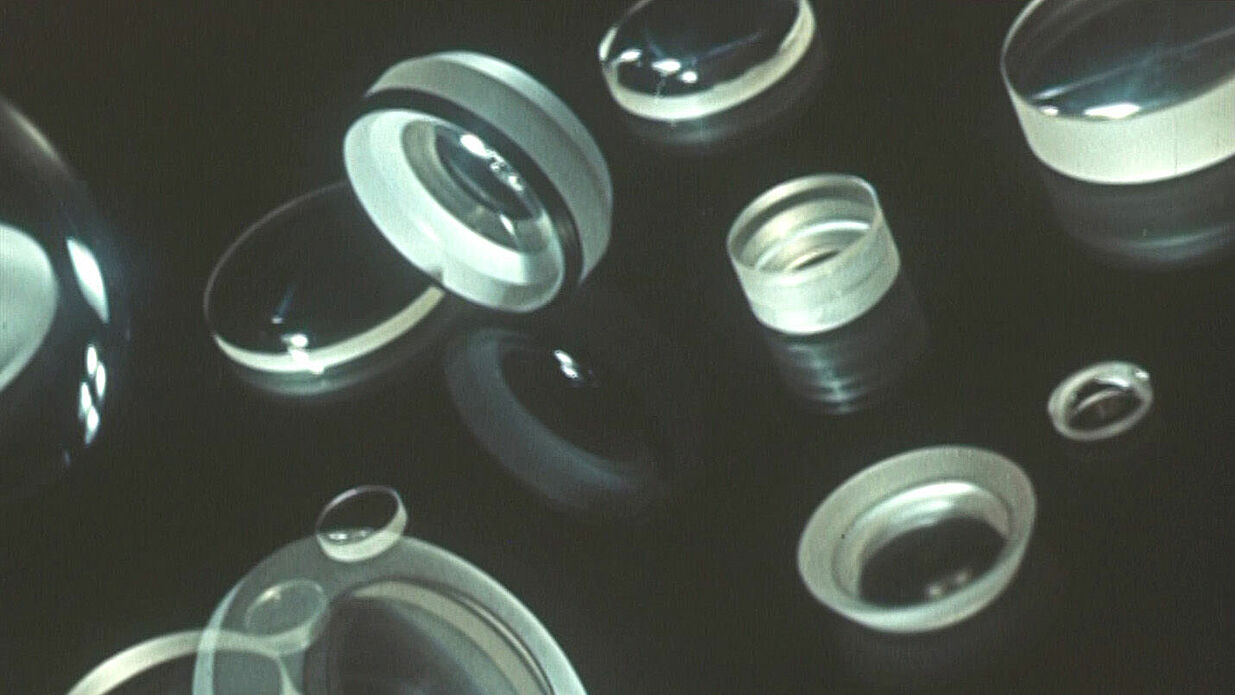Progress as a Promise
Industrial film in divided Germany

Glowing hot steel, smoking vents and flashing switchboards; long production lines with freshly painted car doors; microscopic glimpses of chemical processes invisible to the naked eye; happy workers and entrepreneurs proudly reporting on their corporation's successes. Such images have become iconic; they have shaped industrial film in Germany. The footage tells of economic boom, rising consumption, more beautiful products, modernization, automation and an increased quality of life and work thanks to technical innovation - a language of progress in both East and West.
After the Second World War, industrial film captured the economic reconstruction under different ideological auspices in both parts of Germany. As a commissioned film production, it followed corporate guidelines in the Federal Republic, while state and company interests had to be taken into account in the GDR. Despite these different production contexts, the films here and there promise one thing above all: progress, a better life and work, a happy future. In the young Federal Republic, this means first and foremost prosperity, mobility and a steadily growing economic power; in East Germany, it means above all the proclamation of economic programs and the founding of large socialist enterprises that also keep the social and personal advancement of their workers in mind.
With the increasing mechanization of the working world and a developing awareness of the ecological consequences of environmentally harmful technologies, the ideas of quality, progress and modernity propagated by the industrial films also change from the 1960s onwards. They take into account a changing image of corporations and companies that redefine progress and, for example in the West, integrate ethical aspects into the guiding principles of their automated, robot-controlled working worlds.
Progress as a promise. Under this motto, the retrospective brings together industrial films from West and East Germany that were created for companies and businesses in the mining, iron, steel and automotive industries, as well as the chemical and optical industries. It was created in collaboration with film and contemporary historians who curated selected programs. We would like to thank Ralf Forster (From difficult beginnings and an everyday life of records: the GDR steel industry on film; Everything for the coal: GDR industrial films about energy production; Carried-over motorization: GDR films about the car; Chemistry in action: companies and products in GDR industrial film; Recording life, conveying knowledge, improving communication: Industrial Films Promote Photography, Film and Magnetic Tape; Zeiss for the World: Industrial Films from Jena and Oberkochen), Jeanpaul Goergen (Workshop for Europe - Fire on the Ruhr; The Steel Trace: Images of the West German Iron and Steel Industry; Form Games: Avant-Garde Approaches in the Industrial Film of the Federal Republic; Creation Without End), Günter Riederer (Craftsmen, Technicians, Skilled Workers: Automation in Volkswagen's Corporate Films) and Florian Wüst (Under the Microscope: Chemistry in Everyday Life, Synthesis of Progress: Man and Automation).
The film series accompanies the exhibition Fortschritt als Versprechen. Industrial Photography in Divided Germany, which will be on view at the German Historical Museum from February 10 to May 29, 2023 as part of EMOP - European Month of Photography.